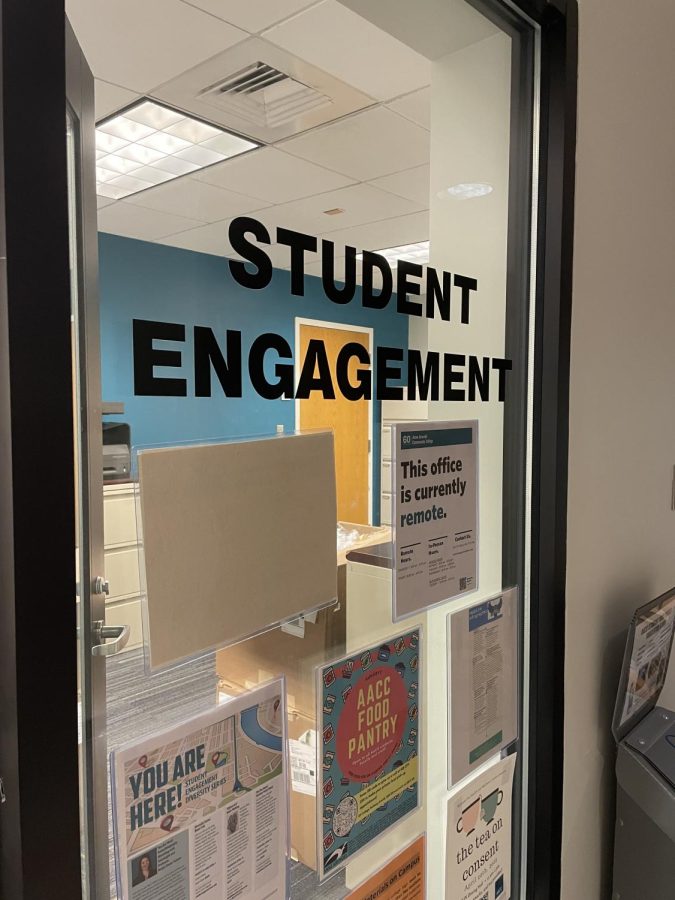Focus groups reveal tips for engagement
AACC’s Office of Student Engagement helps conduct surveys and focus groups to assess students’ opinions on how the college can engage them better.
May 17, 2022
Students have been participating in focus groups to help AACC administrators figure out how to keep them from dropping out of college.
Hundreds of students were invited to participate in three focus groups–small meetings at which students can voice their opinions about ways the college can retain its students–this semester.
“[The] experience was good; it was a diverse group of students,” KyAnna Arrington, a transfer studies student who started taking classes here in 2018, said. “It was … you know, a safe space where you can talk about whatever you need to talk about. Some things, you know, can get a little bit personal, a little bit sensitive.”
Two AACC vice presidents formed The Enrollment, Retention and Completion Committee in November to explore ways the college can help students stay in school.
“There’s been a decline in retention,” Vice President for Learning Tanya Millner, the college’s provost, said at the time. “We’re trying to find ways to meet students where they are and get them back to campus.”
Amberdawn Cheatham, who co-chairs a subcommittee on student engagement, said student engagement is vital to creating a quality college experience.
“Better student engagement increases a sense of belonging for the student,” Cheatham, AACC’s director of student engagement, said. “And if a student feels a sense of belonging, they feel a sense of ownership in the community, right? So they’re going to do whatever they need to do to continue to be a part of the Riverhawk family.”
Fewer students have enrolled at community colleges, both nationally and at AACC, recently, in part because of the COVID-19 pandemic. In addition, more students are dropping out.
Cheatham’s committee seeks “to see how engagement in the classroom and out of the classroom actually impacts people’s decision to continue to enroll,” she said.
The committee found that students lack knowledge about the benefits that come with being a member of the AACC community.
“What we found a lot is that students don’t know the resources that are here on campus for them,” Cheatham said. “So we asked them about, let’s say, tutoring or HelpLink or anything. … We had a whole list of resources that we showed, and the students were like, ‘Oh, I didn’t even know that we had that on campus.’”
Cheatham added: “One of the takeaways for us is to figure out what is the best way to get the resources to the students and to determine which resources need to take priority.”
Arrington agreed.
“So I think just in general, there’s a lack of engagement,” Arrington said. “And also just knowing where things are, knowing where there are resources that students can utilize. … So there’s a lot of resources that we have, there’s a lot of things that we could take advantage of … but I think the main thing is students don’t know that it’s there.”
Fourth-year hotel resource management student Ben Nussbaumer, who participated in one of the focus groups, echoed these sentiments.
“One of the main problems is students just aren’t really aware of what’s going on around campus,” Nussbaumer, the Student Government Association president, said. “So, I think one of the things the college can do is … go over more stuff like using the Nest during student orientations.”
The Nest is AACC’s website for student clubs.
Cheatham said the focus groups also revealed that students want “to have the resources that will help them combat their daily issues.”
Students pointed to issues like transportation.
Cheatham said students also complained of screen fatigue because they attend so many meetings and classes on Zoom or Microsoft Teams.












